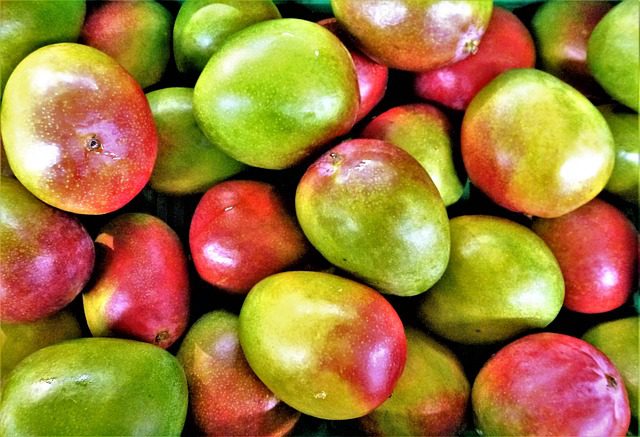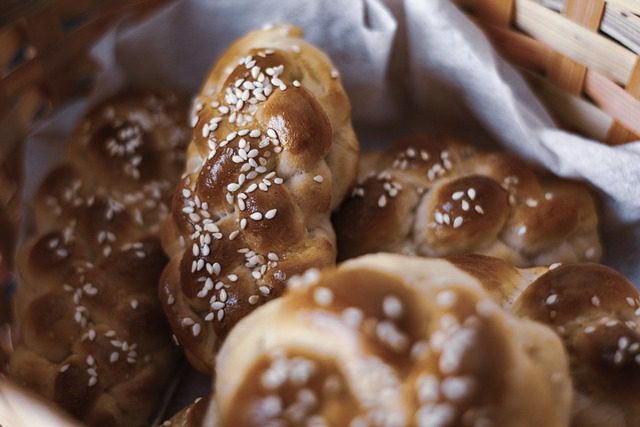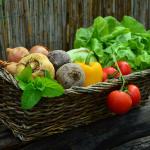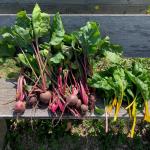The first day of August is fast upon us, and in the Northern Hemisphere many witches and pagans are eagerly awaiting the first of the harvest festivals. Variously known as Lammas, Lughnasa, or Lughnassadh and falling more or less between the Summer Solstice and the Fall Equinox, the festival celebrates the first grain harvest of the reaping season. Back in the day in Merrie Olde England the first loaves of bread from this newly scythed grain were baked and enjoyed by members of the community, hopefully with pots of fresh butter and jams.
Keep in mind there’s a lot more history to this observance than what I’ve just presented; if you’d like to expand your knowledge about Lammas please check out the links at the end of this post.

A Bit About the Sabbat
Many pagan folk celebrate the Celtic deity Lugh on this sabbat, but I tend to sway over to the Lammas side of the room. The word Lammas has its origins in the Old English word hlafmæsse, half meaning “loaf” and mæsse meaning “mass”; the early English church celebrated the grain harvest by blessing the first loaves of bread produced by the community. While I’m no longer a practicing Episcopalian, a love and respect for the act of consecration is something I’ve carried into my witchy practices.
A Bit About Connecting to the Land
These days I live in southeast Florida, where right now it’s not so much the season of the first grain harvest as it is mango season. Peak mango season is generally from May through October, but along about now – June and July – Haden mangoes are quite literally everywhere so, to me, it makes more sense to celebrate a local crop that’s currently being harvested than it does to honor an ancient grain harvest because That’s What I’m Supposed To Do.

If I don’t feel a personal pull, a deep connection, to the celebratory activities of a particular sabbat on the Celtic Wheel of the Year, then my actions become more performative than substantive. That feels inauthentic, and that’s not what I want my witchcraft to be. Speaking for myself and only myself, for my nature-based sacred observances to be meaningful they must connect to what’s going on with the land around me. While in other parts of the world it may indeed be time for the first grain harvest, here it’s time for mangoes, guavas, lychees, passionfruit, and avocados.
A Moveable Feast?
The term “a moveable feast” was in use long before author Ernest Hemmingway wrote his memoir of his days in Paris. In the liturgical calendar, a moveable feast is a celebration that occurs on the same day of the week each year although the actual dates of that day do change from year to year. Ash Wednesday and Easter Sunday are two primary examples of moveable feasts.
When my sons were school-aged their back-to-school date was generally around August 15, about two weeks or so after Lammas. Yet this became a sort of Lammas celebration for me because – again – our seasonal activities were connected to what was going on seasonally in our household. Each year from Kindergarten through their graduations from high school, I made Challah bread the afternoon of their first day of school. It was quick to make and, for us, kind of fancy – braided and shiny.
While I would make Challah bread occasionally at other times of the year, without fail I always made it to celebrate their first day back to school. They knew they would come home to the divine scent of freshly baked bread that had been pulled out of the oven only minutes before they opened the front door. For many, many years this was my Lammas, my celebration of the late-summer shift in seasonal activities. As a city dweller whose seasonal shifts were often connected to what the children in my care were doing, it was a meaningful way for me to connect to the first grain harvest of the Celtic Wheel of the Year.

It’s All About the Bread, Baybee
Whether you’re celebrating Lammas, Lughnasa, or Lughnassadh, my wish for you is to find a way to make it a meaningful celebration that authentically connects you to whatever is going on seasonally where you are. Or perhaps you might consider what is beginning to be harvested in your own season of personal development. And if the first of August holds a special place in your heart, by all means celebrate on the first of August! Your Practice is your Practice, and the way you witch is for you to decide.
Finally, if you’re interested, here are a couple of Challah Bread recipes to try:
As promised earlier, here are some links should you wish to learn more about Lammas:
Lammas (Encyclopedia Britannica)
Lammas Day (Old Farmer’s Almanac)
Lughnasadh (New World Encyclopedia)
Martha Kirby Capo currently resides in southeast Florida, where she is an active participant in EMLC. She has been a presenter at Florida Pagan Gathering, Turning the Tide, and Mystic South. Her first book, co-authored with Vincent Higginbotham, is Thrifty Witchery and is available now online and at your local metaphysical store. Her second book, tentatively titled Etheric Witchcraft, is forthcoming. You can follow Martha on Instagram.

















